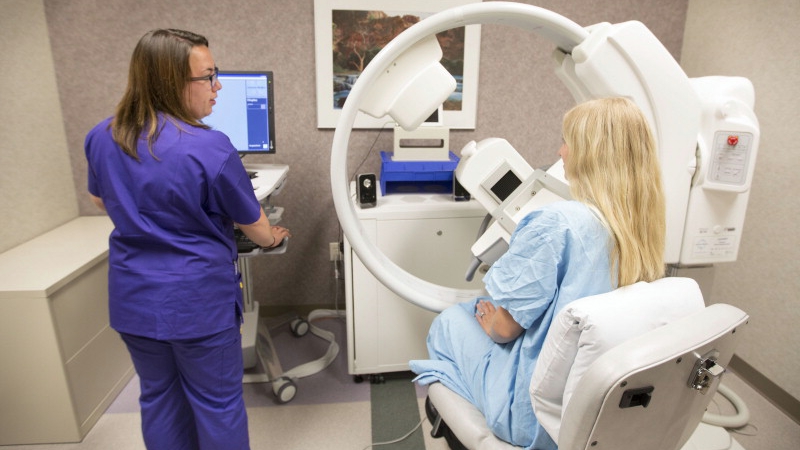-
Cancer
Mayo Clinic Minute: Molecular breast imaging for supplemental breast screening
If you are one of the millions of women identified as having dense breasts, your healthcare team may recommend supplemental or additional screening to check your breasts for cancer.
Dr. Kristin Robinson, a breast radiologist at Mayo Clinic, says there are several options when it comes to these screening tests. She recommends working closely with your healthcare team to determine what is the best supplemental screening available and right for you.
One option is molecular breast imaging (MBI). A Mayo Clinic study shows that MBI is more effective than mammography alone for women with dense breasts.
Journalists: Broadcast-quality video (1:00) is in the downloads at the end of this post. Please courtesy: "Mayo Clinic News Network." Read the script.
Why supplemental breast screening is recommended
"Breast density is important for really two separate reasons. One, the dense tissue on a mammogram looks white, and cancer looks white, so you can imagine if we're trying to find a small breast cancer in a sea of white breast tissue, it can be very difficult," says Dr. Robinson.
And second, those with dense breasts have a slightly higher risk of developing breast cancer.
"For those reasons, we encourage women who have dense breast tissue to consider supplemental screening," says Dr. Robinson.
One screening you may hear about is MBI, a test developed by the Mayo Clinic. It's done in addition to a mammogram. It uses a radioactive tracer that can identify cancer cells.

"And since breast cancer is growing quickly, it's recruiting blood flow, it has more energy than the surrounding breast tissue, it will uptake that radiotracer more so than the normal tissue," she explains.
And by doing so, it lights up and becomes clearer to see for a radiologist compared to the normal surrounding tissue.
To find out if MBI or other screening options are best for you, talk with your healthcare team.
"If you have dense breast tissue, really consider supplemental screening because we know that detects a significant number more breast cancers than mammograms alone," Dr. Robinson says.







